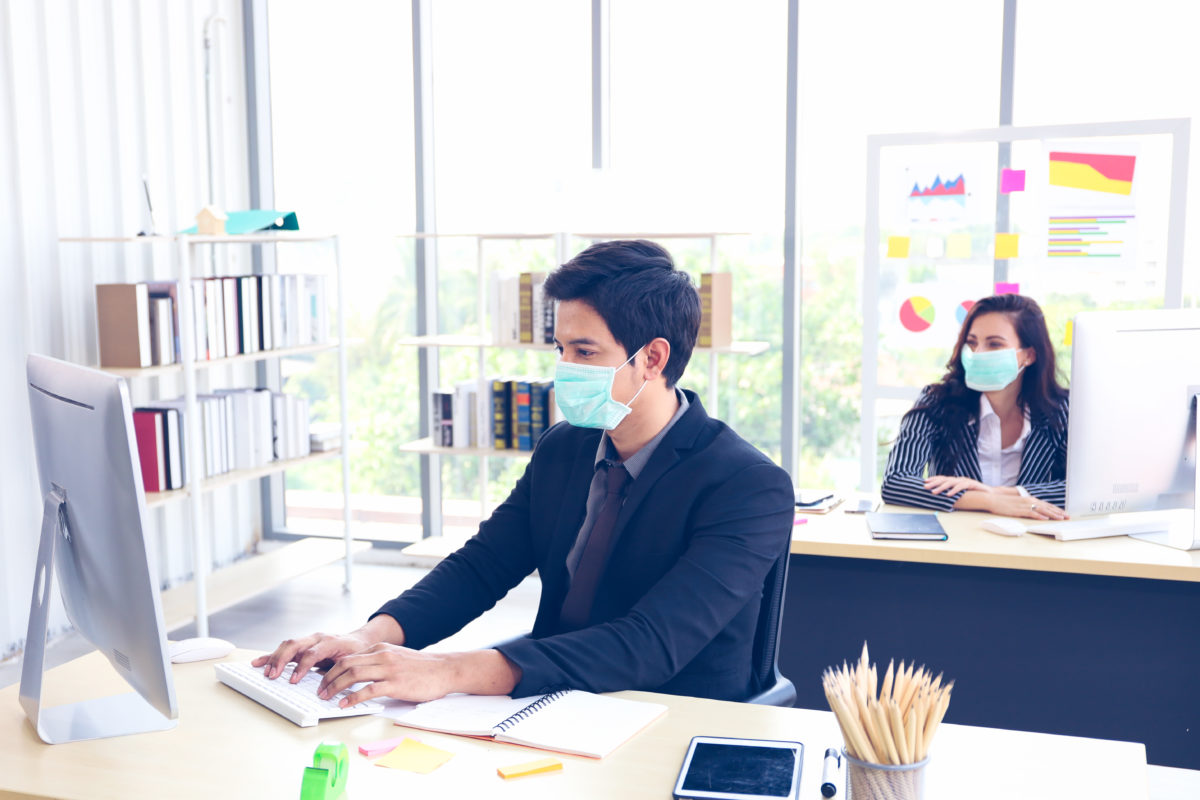
As you can see, COVID-19 still presents quite a problem for many people across the country. As we learn more and more about this virus, people have started to question what legal rights they have. We have seen plenty of COVID-19 lawsuits involving nursing homes and residents that have fallen ill and passed away. However, we’ve seen plenty of employees file these lawsuits against their employers.
Even though the virus has not gone away, many states, including Texas, are slowly reopening. As states reopen, so do more and more businesses. While people can finally go back to work and earn a living, COVID-19 still presents a risk. If employers are not thorough and careful, their employees can contract this virus.
A question we see frequently is whether employees can file COVID-19 lawsuits against their employers. If businesses are committed to reopening, then they must take all the necessary precautions to protect their staff. Employees that fall ill with COVID-19 at work have rights.
However, these cases are not easy. Often, clients face an uphill battle if they plan on filing a virus lawsuit against their employer. Fortunately, the expert lawyers at Wormington & Bollinger are here to help. Give us a call to learn more about your rights and options.
COVID-19 in the Workplace
Regardless of where in the world you live, the coronavirus has impacted your life in some way. Whether your school moved online, you lost your job, or you happened to contract the virus or know someone who did, most people have experienced some form of change.
We understand that this year has been particularly hard on everyone, and going back to work may seem like a blessing. After all, people still have to put food on the table, pay their rent or mortgage, and so much more. But they should also be protected.
Unfortunately, as more areas of the country reopen, businesses continue to be lax with their COVID-19 protection policies. They are not enforcing mask policies or social distancing policies, which puts employees at risk. When a business fails to create a safe workplace, they put their entire staff in danger.
Obstacles Employees Face
Employees face many legal roadblocks when suing their employers. In many cases, worker’s compensation protects employees. However, during this pandemic, many employees have found it hard to get these benefits for COVID-19. Additionally, worker’s comp also prevents employees from filing a lawsuit against their employer to seek compensation. Worker’s comp only offers a limited amount of coverage for lost wages if you suffer an injury or fall ill on the job.
The Occupational Safety and Health Administration (OSHA) requires that all employers must create a safe work environment, protecting their staff from “recognized hazards that are causing or likely to cause death or serious physical harm.” As you can imagine, COVID-19 should fall into this category.
OSHA also encourages businesses to follow public health recommendations from the Centers for Disease Control and Prevention (CDC). Some of these recommendations include:
- Conducting daily health checks with employees
- Conducting hazard assessments of the workplace
- Maintaining at least six feet of distance between each other and guests
- Regularly disinfecting surfaces
- Wearing face masks
- Regularly washing your hands with soap and water (using hand sanitizer if washing your hands is not possible)
- Limiting the occupancy of your establishment
- Posting signage that reminds workers and guests to maintain six feet between each, wash their hands with soap, and wear a face mask
- Reminding employees to evaluate themselves for symptoms of COVID-19 and to remain home if sick
These are just a handful of guidelines businesses should be following to keep their staff and guests safe. Unfortunately, especially as states reopen, businesses have gotten lax with these guidelines. Many of them fail to enforce them, which puts all parties at risk.
Holding Your Employer Liable
As we said before, filing a workplace-related COVID-19 lawsuit is no simple task. Proving liability is the main factor in these lawsuits. Typically, liability is regulated at the state level, and many states are already providing protection for businesses. However, more and more employees are coming forward and filing COVID-19 lawsuits against their employers.
Employees allege that their employers failed to provide adequate protection against the coronavirus, which lead to illness and even death. However, when it comes to the coronavirus, many things are still uncertain.
Not only that but going up against a large corporation is hard on its own. Often, they have vast resources and will fight against these allegations. Furthermore, businesses continue to lobby Congress with the hopes of getting protection from coronavirus related lawsuits, from both employees and guests. Many companies are now requiring guests and employees to sign a liability waiver that acknowledges the dangers.
While worker’s comp is likely your best option, receiving benefits for COVID-19 is not easy. That is why many employees have turned to COVID-19 lawsuits to fight back.
Contact Wormington & Bollinger
As coronavirus cases continue to rise, so too will lawsuits. Going up against a business is hard enough as it, but when you include the coronavirus, things become more complicated.
That is why it is so vital to get the aid of a trusted attorney to help you navigate these waters. If you contracted COVID-19 because of your employer’s negligence or failure to protect their staff, contact Wormington & Bollinger and let us help. These lawsuits are tricky to navigate, which is why it is so important to have the help of a trust attorney on your side.




